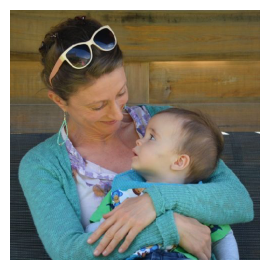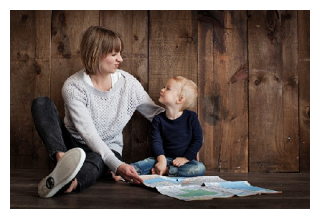Helping Your Child Feel Great About Themselves!

Parenting and understanding our children can be challenging. Dr. Naira Wilson, Clinical Psychologist at The Little Therapy Room, has kindly supplied the following article offering advice on everyday parenting issues
How we talk about children, helping them grow resilient, validate their feelings and improving self-esteem
Have you ever eavesdropped on someone complimenting you? Adults and children often listen more intently when they are being talked about than when they are spoken to directly; they absorb praise more readily if they are not expecting it.
“Look at this project Ella did – she spent so much time and care over it. I was really impressed by her enthusiasm.”
How we talk about our children will have a bearing on their experience of themselves and in turn effect their self-esteem. Catch yourself before you make that quick comment: is it a criticism, a complaint, a comparison? Can it be reframed or not said at all? Can the imperfections and negatives be ignored? Instead, share the good intentions your child has, no matter how subtle. You don’t have to boast – just be honest!
Talking about them positively and empathically – even if they are not in the room – will make you feel good about your child and, in turn, they will feel good about themselves.
“Come and see this lovely picture your sister made for you at school; she must have been thinking about you all day. What a lovely/sweet sister you have – it’s so nice to be loved like that.”
“My daughter’s coping so well with all the changes she’s going through at the moment. I forget how grown up she can be.”
One step further in this quest for less criticism would be to watch what you say about yourself, and your partner, in front of your children. Find a way of sharing what you value about the whole family, including yourself, and avoid self-deprecation. Further still, when you share stories with others, try to emphasise your family’s strengths. Your child will start to absorb these ideals, thus creating a kind of family motto – the spirit of your family.
“Isn’t it great that dad always makes sure the car has got petrol? It makes life so much easier.”
“We got through that difficult time because your dad and I make a good team.”
“We’re pretty good in a crisis!”
Helping children to move away from critical thinking will enhance their self-esteem and potentially benefit the entire family.
The following practical ideas can help parents increase their children’s resilience and improve self-esteem:
1. Observing Our Children
In our busy lives, juggling home, work and school, we often rely on our children to occupy themselves. This is of course a crucial skill for children to learn, in order for them to face the world independently. But there is also a flip side to this. When your baby was new born, did you sometimes gaze at them for long stretches, looking into their eyes – falling in love? We know that this ‘staring’ is not a result of sleep deprivation! It is actually essential in building a healthy bond – or attachment. I believe that the need for being mindfully observed continues into late childhood and beyond. In fact I believe it enables us as parents to recreate and reinforce that early bonding experience, ultimately increasing our child’s self-esteem; observing and being interested in our children makes them feel worthwhile.
2. How and When to Observe Our Children
Try taking just a few minutes to observe your child when they are not expecting your time or attention. They could be playing, doing homework or even watching TV. Comment on what you see and what it means to you and then get back to those ever-demanding tasks! This act itself will provide you with a small pause, slow your heart rate and help you to relax, which when interacting with your child will make them feel calmer too (even if for just a minute!). Feeding your observations back to your child will enable them to see how important they are to you and that you are interested in them: they will absorb your pride, as you watch how they tackle their world. This builds their self-esteem.
Some Sample Observations
“I love your laugh! “You look like you are really enjoying that programme.”
“I just saw you let go of that toy and avoid a row. That makes me feel so proud”
“Is it difficult / frustrating trying to colour in the lines? I find that too sometimes.”
To ‘validate’ something is to acknowledge it as true. When our feelings are validated by others – as opposed to being ignored, dismissed or contradicted – it makes us feel understood and gives us a sense of well-being. When we trust what we feel, we begin to understand our emotional world. This allows us to deal with our everyday, and most difficult, experiences.
When your child falls over and hurts themselves, your instinct might be to pick them up and say, ‘You’re fine!’ If your little one won’t stop crying, you might tell them to dry their eyes, or even ‘keep going!’ On other occasions it might be socially more convenient to tell your child that their friend didn’t mean to be nasty, when this was clearly not the case! These are all natural understandable reactions. However, when children’s emotional responses are dismissed all to often, they do not learn to trust their feelings. This can lead to a more intense expression of emotions (resulting in tantrums). Or your child could stop sharing how they feel altogether and start to internalise their negative experience. Both outcomes can result in poor coping strategies into adulthood.
Although we do need to teach our children not to dwell on pain – either emotional or physical – it is important to acknowledge their pain. This will let your child know that they are being heard and taken seriously and allow them to recognise and accept their own emotions. Rather than making them dwell on a negative feeling, by acknowledging it you will help your child move on.
Once you have acknowledged your child’s emotional reactions, they will be better equipped to react in a more mature manner. You can help with this too, by suggesting an appropriate response:
‘I can see you’re really angry about that – I would be too, it doesn't feel fair at all. Did it hurt your feelings? But you and I know that it’s not nice to hit back. Maybe try telling your friend that you don’t like being hit on the head with his dolly and it doesn't make you want to play with them!’ ‘It must feel really annoying when your sister gets to stay up later than you. I know it’s hard but if you want to grow up to be as big and strong as her, you need to go to bed a bit earlier. What would you do if you could stay up . . . ? Would you like to do that when you wake up instead and have your own special time?’
Validating your child’s emotions also allows you to share the experience and reaffirm your bond with them. When a child is able to trust their own feelings, they develop a robust emotional barometer that will carry them through all sorts of social interactions and personal relations in later life. They learn that feelings are justified and it is their behaviour that needs to be adjusted to be more socially acceptable.
And it’s not just children who benefit – you could try validating your partner’s emotions too, once in a while!






















